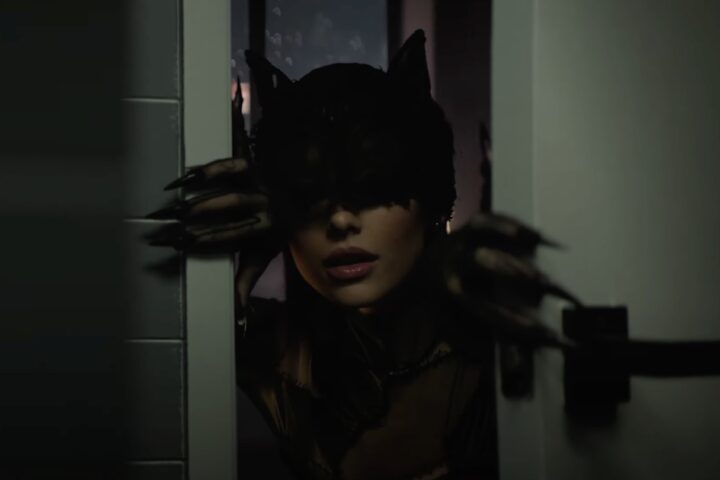Rappers $crim and Ruby da Cherry, the duo known as $uicideboy$, are both recovering opioid addicts, and they treat their battles with drugs, depression, and suicidal ideation as a flex. Not to put too fine a point on it, their 20-part mixtape series is titled Kill Yourself. And the New Orleans pair’s fourth studio album, the aptly titled New World Depression, delivers even more posturing.
$uicideboy$’s rapid-fire flow, defined by thick Southern accents and sudden shifts from rapping to singing, harkens back to Memphis horrorcore, though they’ve moved away from the Three 6 Mafia imitations of their early music. The tense piano and scratching of the catchy “Us Vs. Them” is a clear pivot toward a ’90s New York hip-hop sound.
While $crim and Ruby are now in their 30s, tracks like “The Thin Grey Line” have a teenage edgelord quality to them: “Talking about killing got my dick getting hard.” The group’s attitude remains similar, with brash boasts mixed with equally extreme evocations of outrageous violence and drug use. Over the course of an entire album, this grows monotonous, just as their relentless, exaggerated misogyny quickly becomes grating.
Horrorcore isn’t known for tasteful lyrics, but even its uglier moments have been a way for artists to express their struggles with addiction and mental health. The fact that, for $uicideboy$, these experiences are so closely tied up with how they treat women makes New World Depression a harder pill to swallow. “If I got to pick the drugs or a bitch, you know what I’m choosing,” goes one lyric on “The Light at the End of the Tunnel for $9.99 a Month.”
The album’s best songs bring out an emotional rawness that all the machismo seems designed to hide. “Trangressions” gazes unblinkingly at problems that success can’t overcome: “Hurts too much to give a fuck…Demoralized, always lying, telling people I’ll be fine.” New World Depression blows $uicideboy$’s feelings up as the material for a gleefully offensive horror movie, but it also highlights the bleak reality that remains after the credits roll.
Since 2001, we've brought you uncompromising, candid takes on the world of film, music, television, video games, theater, and more. Independently owned and operated publications like Slant have been hit hard in recent years, but we’re committed to keeping our content free and accessible—meaning no paywalls or fees.
If you like what we do, please consider subscribing to our Patreon or making a donation.



How did you get the lyrics of unreleased songs?
Right? This article is sus and opinionated af
This review is woefully out of touch and feels a lot like you had a bias against them going into it. Your reading of their struggles with addiction and suicidal ideation as a “flex” seems very judgmental, cynical, and in rather bad faith. Speaking candidly about pain they’ve gone through that a large portion of their audience can relate to, even through the lens of southern hip hop’s characteristic attitude, is not a “flex.” They make the music they make because people relate to it. Your comments about “misogyny” and “teenage edgelord lyrics” could apply to a vast swathe of rap as a genre, and arguably even the majority. When guys like Drake and Future built entire careers off misogyny, or massive rappers like Doja Cat drop truly juvenile “edgy” albums as a gimmick, your criticism rings shallow. It’s one thing to acknowledge the place of needless edge and misogyny in hip hop as a whole and relate that to this album, but it’s not something new. I’d argue the album isn’t misogynistic at all, or certainly not even close to most rap releases, but I digress. At the end of the day, if you’re going to publish a review in a magazine with nothing substantive to say, maybe just admit you don’t really like them at the start?
They hate us cause they ain’t us. Grey.
God awful review.
What on earth is this review lol, choosing “drugs over a bitch” is a reference to struggling with intimacy due to drug dependence and toxic traits that come with it. Media literacy has left the chat lmao